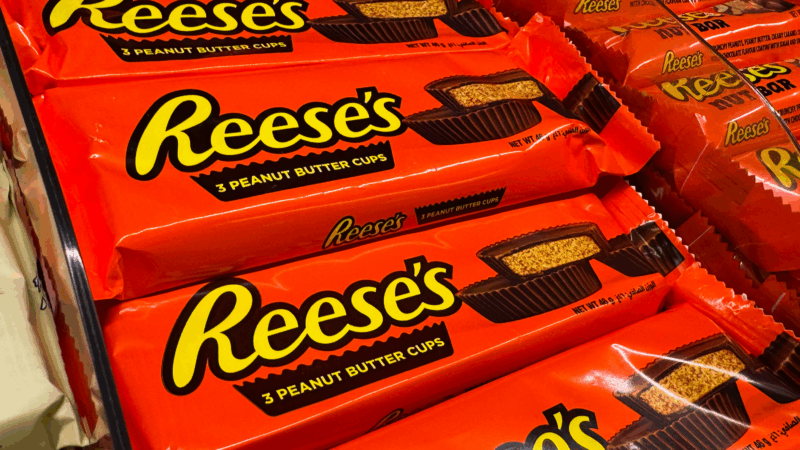Warren Buffett announces his retirement and warns the trade war will hurt America
OMAHA, Neb.–Warren Buffett wants the United States to knock off its trade war.
“Trade should not be a weapon,” the billionaire investor and Berkshire Hathaway CEO said on Saturday morning, at his annual shareholder meeting in Omaha.
The United States “should be looking to trade with the rest of the world. We should do what we do best, and they should do what they do best,” Buffett told the crowd of thousands in a downtown arena, who broke out into applause.
Buffett did not mention President Trump, whose sweeping new tariffs have ignited a global trade war, roiled financial markets, and sounded wide-ranging alarms about a recession.
But his rebuke of Trump’s policies answered one of Wall Street’s biggest questions of this weekend: Would Buffett weigh in on the trade war and its massive disruptions? Many of those attending this “Woodstock for Capitalists,” which draws tens of thousands of people from around the world, told NPR they were waiting for Buffett to speak out on the tariffs.
Buffett, 94, also closed the event with major news, announcing that he would be stepping down as CEO at the end of the year, in favor of his long-designated successor, Greg Abel. He received a prolonged standing ovation from the audience in Omaha’s CHI Health Center.
“The enthusiasm from that response can be interpreted in two ways,” he quipped as he left the stage.
The Berkshire Hathaway CEO has been largely silent on trade this spring, as some of his peers have cautiously started criticizing the tariffs’ impact on the global economy — and their businesses.
Buffett “has got to be frustrated by what’s going on in Washington, for no other reason than it has injected a degree of uncertainty into his business,” says Cathy Seifert, an analyst who covers Berkshire for CFRA Research.
Now many of the largest U.S. companies are cutting or withdrawing their financial forecasts for this year, citing the tariffs.
Berkshire added to the warnings on Saturday morning, as it reported a sharp drop in quarterly profit from a year earlier. The company said it can’t currently predict the tariffs’ impact on its vast array of businesses and investments, but “it is reasonably possible there could be adverse consequences.”
Buffett uses his bully pulpit to advocate for America
At age 94, Buffett wields a tremendous amount of power on Wall Street and beyond.
He bought Berkshire Hathaway in 1965, when it was a struggling textile mill. Sixty years later, it’s one of the largest companies in the world, operating businesses ranging from insurance and railroads to Dairy Queen and Duracell batteries. It’s also a powerful investor in other companies, owning shares in Coca-Cola, Apple, American Express, and other big businesses.
“Because of its breadth and its depth … it really is sort of a microcosm for the broader economy,” Seifert says.
The Omaha-born Buffett is famously folksy and tends to wrap himself in the American flag, regularly praising both his country and its systems. “The luckiest day in the world is the day I was born. I was born in the United States,” he said on Saturday.
So he framed his opposition to tariffs, in part, as a matter of national security for the U.S. and its citizens.
“The more prosperous the rest of the world becomes … the more prosperous we’ll become, and the safer we’ll feel and your children will feel someday,” he said, to more applause.
Buffett turns rote corporate event into “Woodstock for Capitalists”
Buffett spoke for more than four hours on Saturday, in a decades-old tradition that’s unlike any other investor meeting in corporate America.
Most of these events are tedious, rote, and often virtual. But Berkshire and its CEO have turned its annual meeting into a party weekend in Omaha.
In person, the feeling is part fan convention, part quasi-religious revival, and part pop-up outlet mall. Buffett said that on Friday, almost 20,000 people visited the CHI Health Center’s exhibit hall, full of displays — and shops — devoted to Berkshire-owned brands.
Many emerged with bulging shopping bags full of See’s Candies, Fruit of the Loom underwear, and plush “Squishmallow” toys modeled after Buffett and his late business partner, Charlie Munger.
Finance bros in vests crowded past young families with strollers, foreign travelers taking selfies with gigantic Berkshire signs, and retirees who told an NPR reporter they’ve owned Berkshire shares for decades.
“I told my kids: Do not sell it,” said Lorenzo Alaan, a retired physician who traveled to Omaha from The Villages, Florida.
“You sell your house, your jewelry, don’t sell Berkshire,” he added. “It’s for your children and grandchildren.”
A new one-a-day-pill holds promise for HIV’s ‘forgotten population’
It's designed to take the place of complicated, multiple drug regimens that many people with HIV need to follow. And it's also beneficial because the HIV virus is always evolving.
For filmmaker Chloé Zhao, creative life was never linear
Director Chloé Zhao used meditation, somatic exercises and dance to inspire the cast and crew of this Oscar-nominated story about William Shakespeare's family.
10 new books in March offer mental vacations
March is always a big one for books – this year is no different. We call out a handful of upcoming titles for readers to put on their radars — offering a good alternative to doomscrolling.
Sen. Chris Coons, D-Del., talks about the war with Iran and upcoming war powers vote
NPR's A Martínez asks Delaware Democrat Chris Coons, a member of the Senate Foreign Affairs Committee, about the war with Iran.
The candy heir vs. chocolate skimpflation
The grandson of the Reese's Peanut Butter Cups creator has launched a campaign against The Hershey Company, which owns the Reese's brand. He wants them to stop skimping on ingredients.
Scientists make a pocket-sized AI brain with help from monkey neurons
A new study suggests AI systems could be a lot more efficient. Researchers were able to shrink an AI vision model to 1/1000th of its original size.







